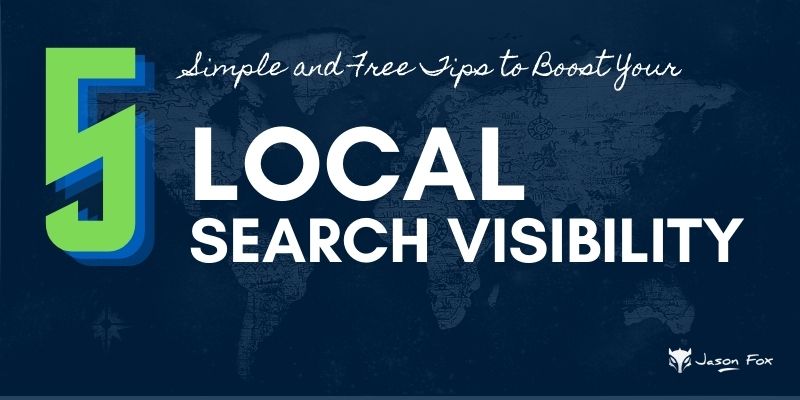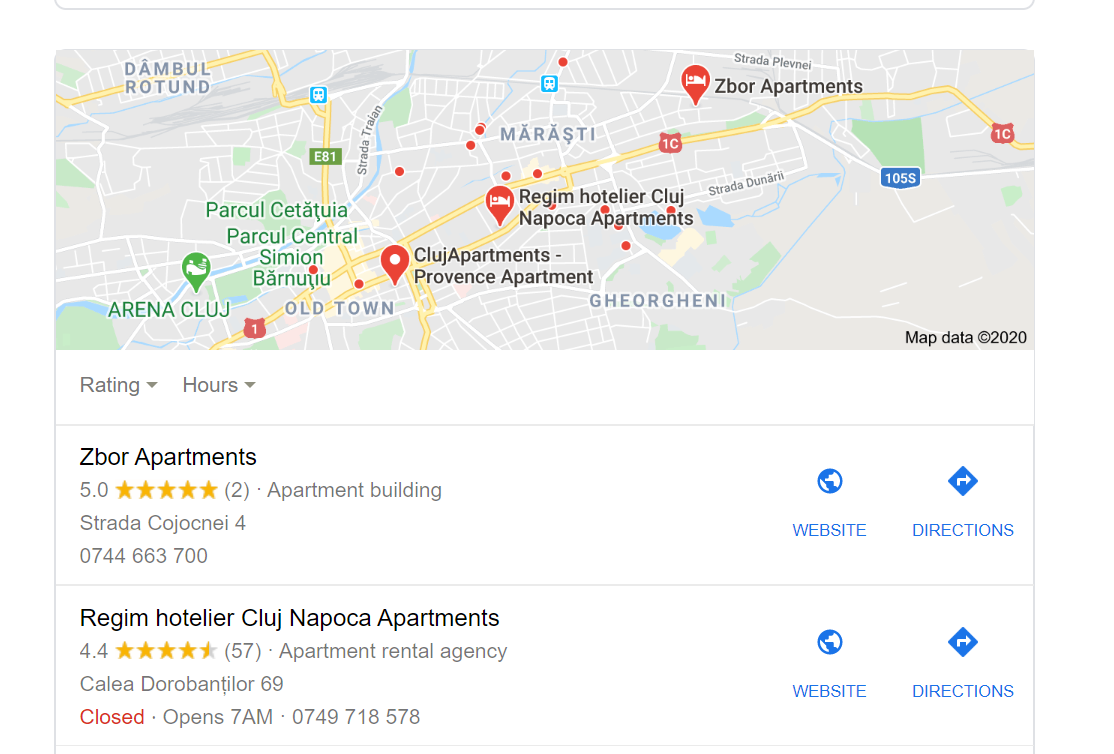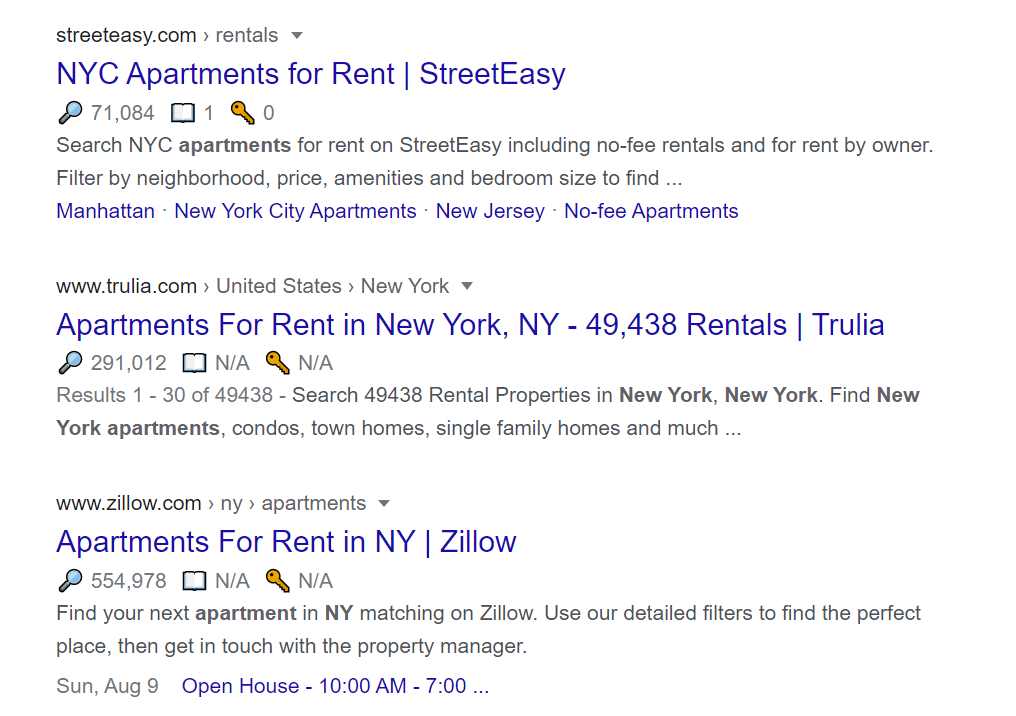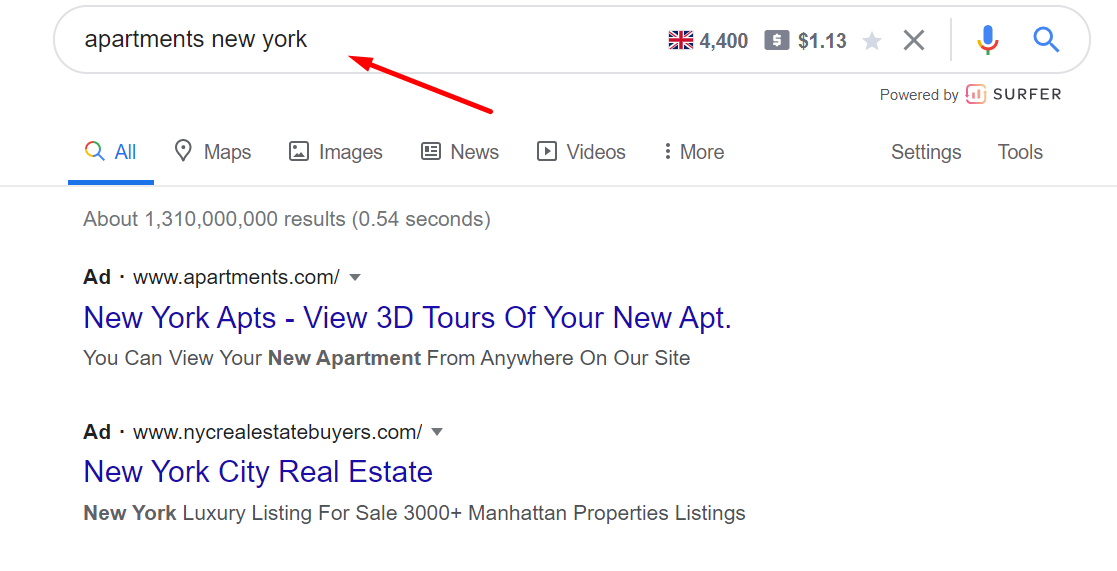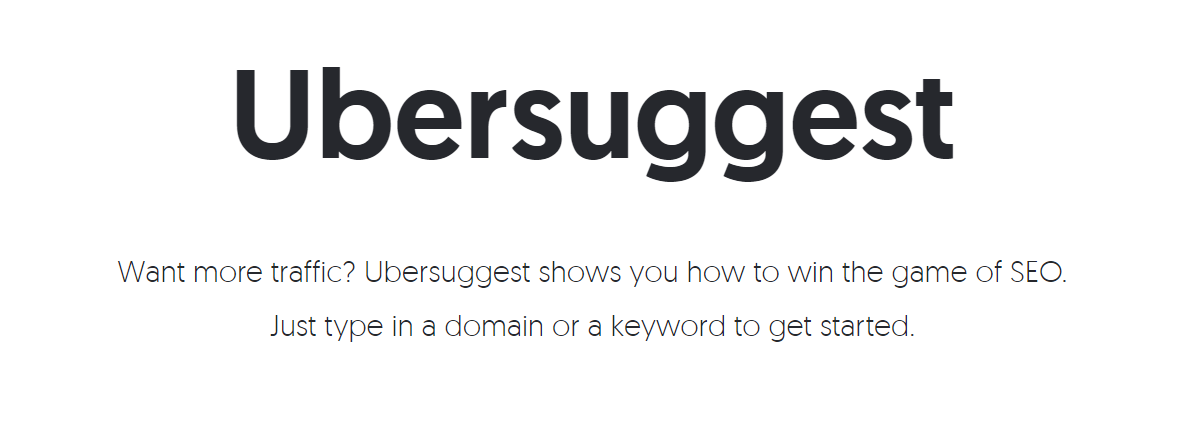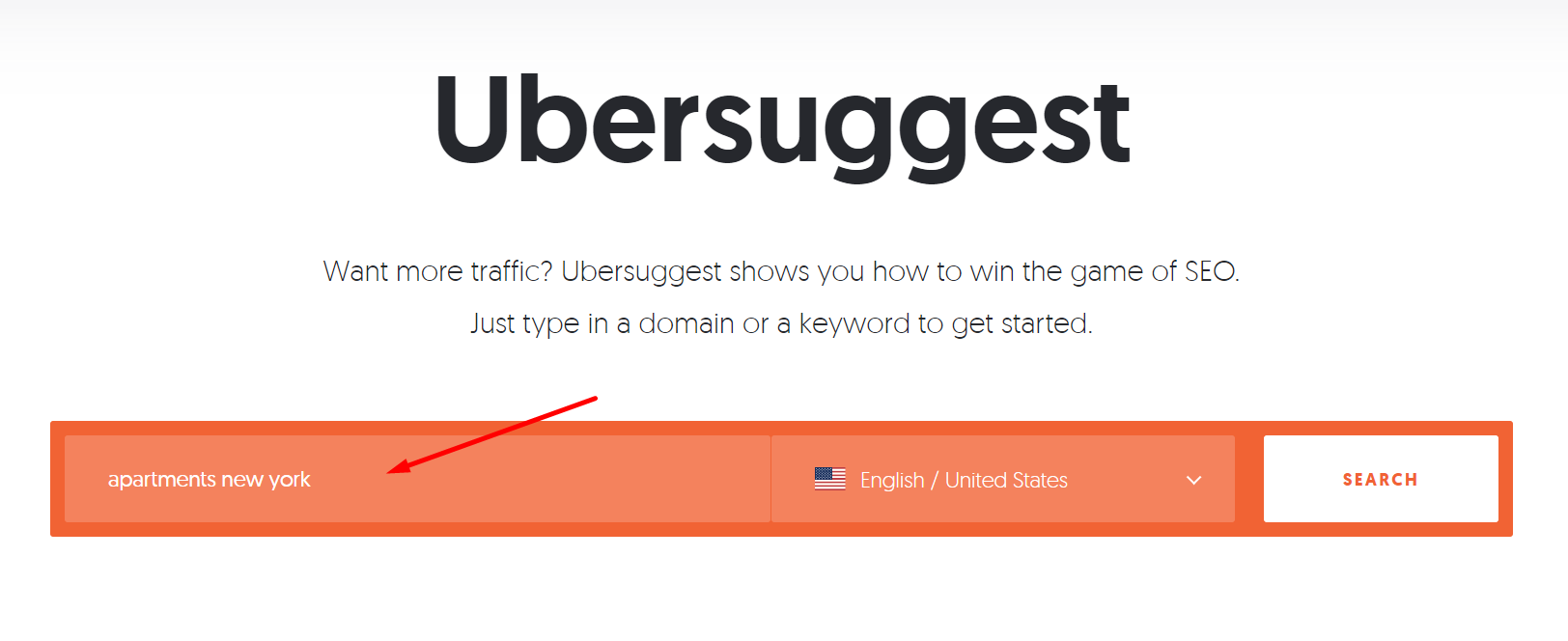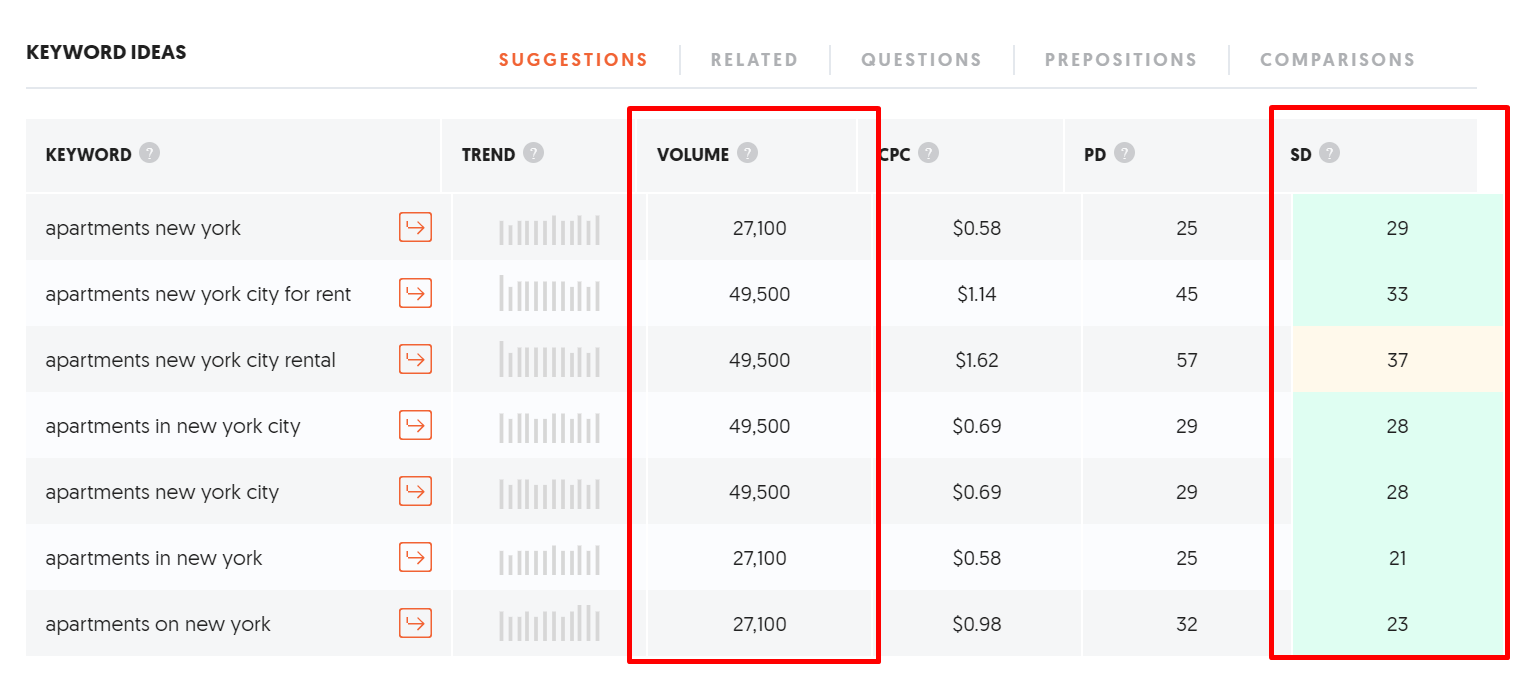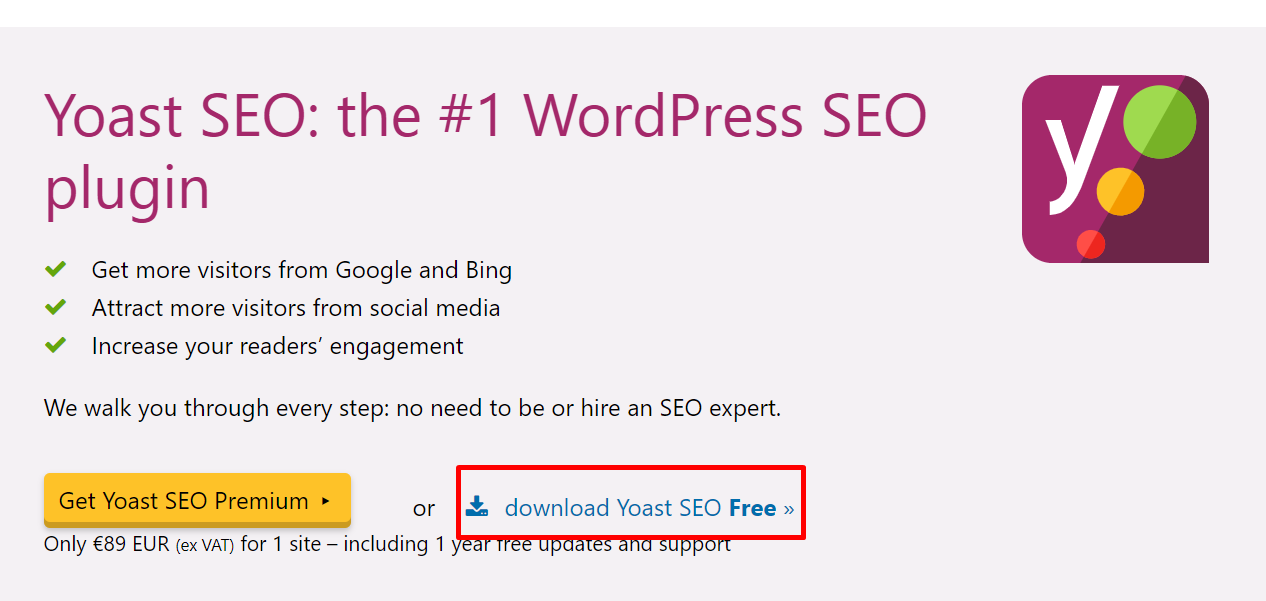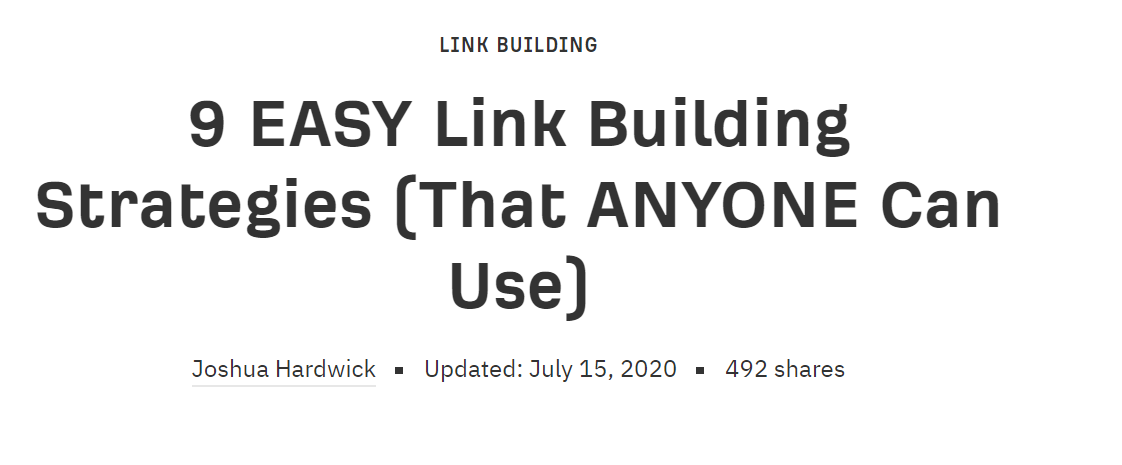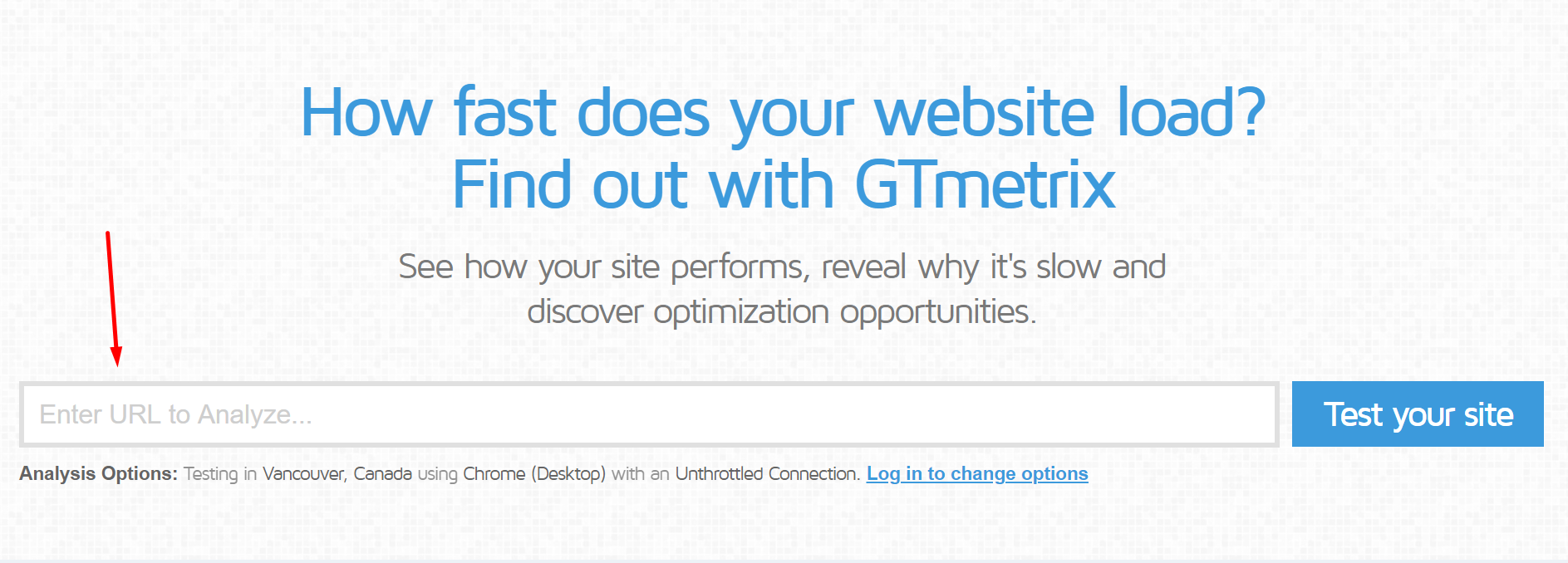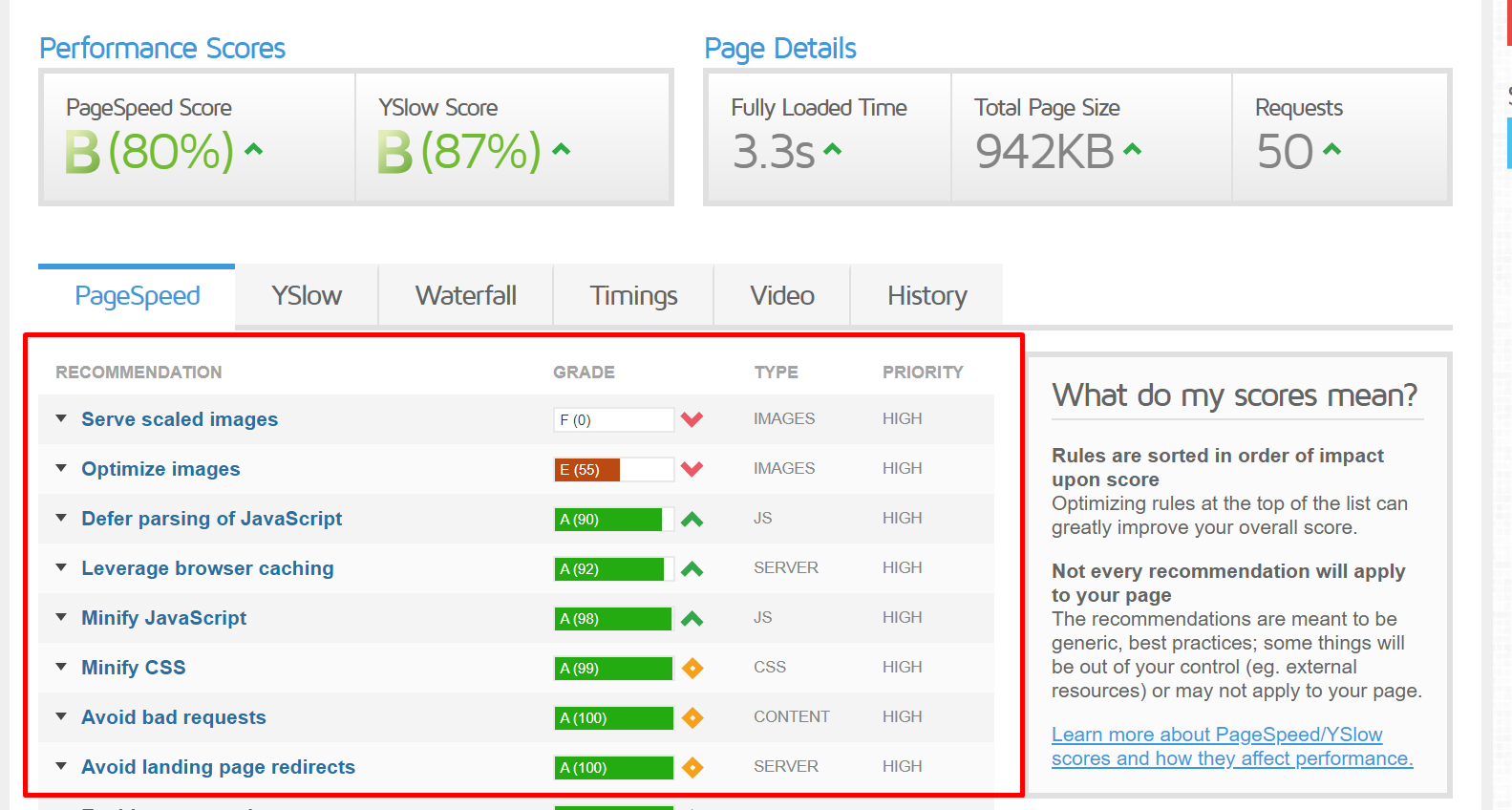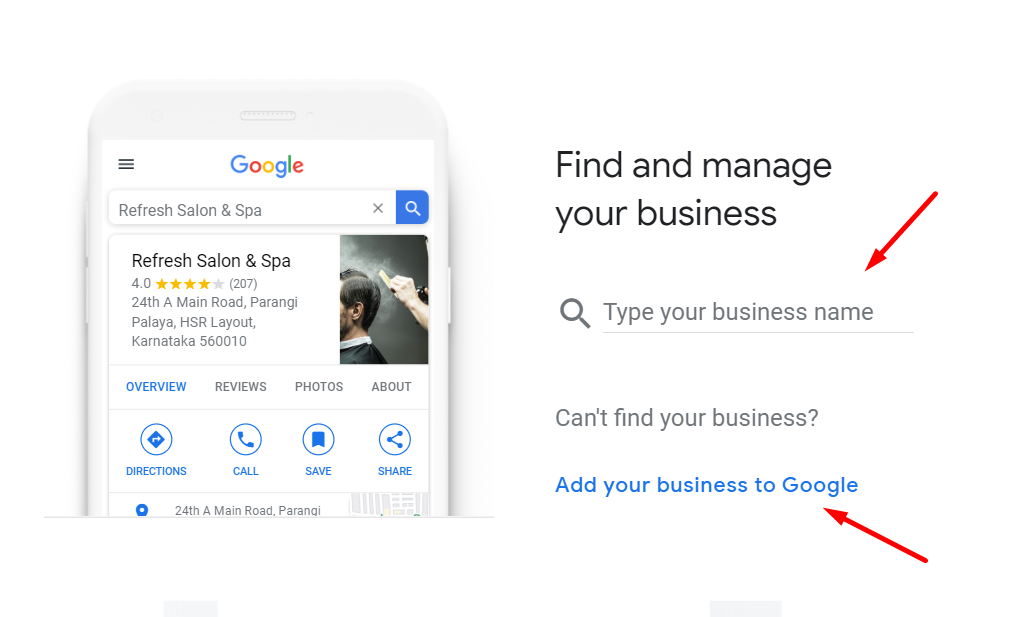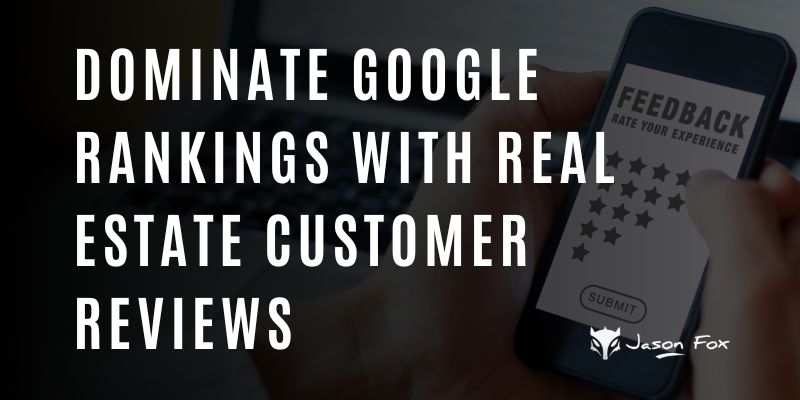5 Simple and Free Tips To Boost Your Local Search Visibility
Local searches can help your real estate business boom.
That’s because people don’t just use Google for weird medical problems or curiosities.
People actually look for things they want to buy on Google.
And if you’re there to greet them with the right offer, you can boost your bottom line.
You can harness the power of local search results to help you close more deals.
But how do you go about it?
What Is Local Search Visibility?
First, let’s understand what we’re talking about.
Local searches are geographically tied searches like “penthouse for sale New York” or “Italian Restaurants near me”.
And the results for this type of search are similar to your average SERP (Search Engine Results Page) but they also come with a twist.
They have a rich snippet (an extra box on the results page) displaying local businesses:
It doesn’t even have to be a term containing a city or keyword modifier like “near me”.
For some searches, Google will automatically display a search results box based on your location.
For example, if you Google “apartments” you’ll most likely find a list of apartment complexes near your location.
So in turn, Local Search Visibility is about showing up on that rich snippet and maximizing your chances of getting a spot in the regular search results below that box:
So how do you get there?
Tip #1 – Use The Right Keywords On Your Site
Let’s backtrack a little bit.
How does Google work?
Shortly (and I emphasize that “shortly” part), people input search terms (usually referred to as keywords) in the Google search bar, and then Google uses its large network of crawlers to display websites that, among other things, feature those keywords.
But the thing is, you can’t just guess what people are searching for.
And there may be important differences between what you expect people to search, and what your ideal customers are actually searching for.
For example, more people may be searching for “apartments New York” than they would for “studio Bronx utilities included”.
So you should know these differences.
Enter: Keyword research tools.
Because you can’t just guess what people are searching for – you need an actual crawler that indexes that information and serves it to you.
There are a lot of options of keyword research tools, like Ubersuggest, KWFinder or Longtail Pro.
By far the best (and our favorite, and the largest crawler besides Google) is ahrefs.
But it’s a bit expensive, so consider it only if you have a big platform and want to work on your site seriously.
For a free alternative, you can use Ubersuggest:
It’s not as good as ahrefs, but it’s a decent budget friendly option.
To use it, just go to their website and input your seed keyword – that’s just a starter term so to speak.
Ubersuggest will then show suggestions for other keywords people are searching for in that niche, as well as metrics for deciding what keywords you can target.
Just look for the keywords with a lot of volume, and little SD (Search Difficulty).
And then optimize the content on your pages (descriptions, titles, etc) by using the keywords you found work for your business.
Besides that, install a plugin like YoastSEO if you use WordPress, and modify the meta data of your pages.
That’s the data Google indexes when crawling your site.
Tip #2 – Optimize Your Site for Indexation and Ranking
Besides keywords, Google puts a lot of emphasis on your site’s overall performance.
Ahrefs calls it “SEO health”.
And you should definitely work on it.
Check your site’s pages and make sure that:
- All of your pages have metadata
- None of your links lead to broken pages
- You don’t have any pages with errors
There may be other factors, but this is all the insight you can get for free. If you really want to find out everything, sign up for an ahrefs trial (it’s $7 for 7 days) and do a site crawl. That will show all other issues with SEO health.
Besides these technical SEO (Search Engine Optimization) tips, make sure you have a sitemap that Google can see. If you use YoastSEO, it will submit one to Google automatically. If you don’t, check this tutorial from Google.
If you have a good SEO health and a sitemap submitted, it’s time to garner some backlinks to your pages.
Backlinks are references from other sites to your own site, showing Google that you’re a trustworthy source.
But backlinks shouldn’t come from everywhere.
They’re only good if they come from websites with a high authority (install the Moz bar to check for authority) and in your niche.
So good if it’s from a real estate blog.
Bad if it’s from the comments section of a Youtube video.
The way people usually go about getting backlinks (again, put very simply) is that they create educational articles like this one, and then promote it to other websites as a potential source to link back to.
Usually, it will work if:
- You write a guest post for that other website
- Your articles are really good and people just want to link to them for their value
- You recommend replacing a broken link from that other person’s website with a link to a similar resource on your website
But there are a lot of variables to it.
On top, it may be hard to create content as a realtor.
So you should be inventive. Remember that getting backlinks is a PR task more than anything else, and also make sure you read our link building strategies for more info.
Tip #3 – Optimize Your Website
Navigation is something Google takes into account after people end up on your site.
Things like loading time, use of multimedia content, how much time people spend on your page, whether they turn to a different SERP results after checking your site, and a lot of similar metrics…
All of these are measured by Google when deciding what pages get better visibility, both for local search results, and regular search results as well.
But we know it may be hard to optimize your entire site to be a web design masterpiece.
And it’s definitely not something simple or free.
So how do you go about it?
Here’s a bootstrapper’s guide to optimizing your website.
First, take a close look at all of your pages and remove unnecessary clicks or broken forms. It should be an afternoon’s work even if you’re not a developer.
If that’s not possible…
The second thing you should do is improve loading time on your pages.
Loading time is a very important part of SEO.
Ok, backlinks and using the right keywords are a bit more important.
But that’s why they were first.
To improve your loading time, go to GTMetrix and paste your URL into their bar:
Wait a few minutes, then implement their suggested changes:
They all come with detailed, noob-friendly tutorials, so it should be a breeze.
If you want to check some websites for inspiration, here are some successful affiliate websites examples. They’re not real estate websites, but it’s a good list to get some idea of what your site still needs in terms of optimization.
Tip #4 – Claim Your Google Business Account
When displaying businesses for search results, Google doesn’t use your website.
They use your Google Business account.
So either claim it if your business is already on the rich snippet, or just create a new account:
Fill it in with as many details as you can, using the same keywords you found earlier.
But that won’t be enough.
If you want to climb on that local search rich snippet…
You need reviews.
Tip #5 – Incentivize Reviews
The reviews shown on your Google My Business page dictate how high you climb on that rich snippet.
So you should incentivize your happy customers to leave as many of them as you can.
Here’s how to do that:
- Ask them directly. It’s free, it’s simple and you can’t expect people to review you if they don’t know that’s something you need. If you find them a sweet apartment, chances are they’ll be more than happy to leave a review.
- Send follow-up messages to former clients asking for a review.
- Send your clients custom review links. Click this link to create yours.
- Add that link to your website.
- Interact with reviewers. That’s extremely important, especially if you get a bad review. Keep your calm and offer brilliant customer service.
In Conclusion
Local search visibility is an important part of moving your business online. As a realtor, it may be harder to compete at times, especially if you’re running against the budgets of big agencies.
But it’s not impossible.
And we hope these 5 simple and free tips to boost your local search visibility helped.
post contents
Local searches can help your real estate business boom.
That’s because people don’t just use Google for weird medical problems or curiosities.
People actually look for things they want to buy on Google.
And if you’re there to greet them with the right offer, you can boost your bottom line.
You can harness the power of local search results to help you close more deals.
But how do you go about it?
What Is Local Search Visibility?
First, let’s understand what we’re talking about.
Local searches are geographically tied searches like “penthouse for sale New York” or “Italian Restaurants near me”.
And the results for this type of search are similar to your average SERP (Search Engine Results Page) but they also come with a twist.
They have a rich snippet (an extra box on the results page) displaying local businesses:
It doesn’t even have to be a term containing a city or keyword modifier like “near me”.
For some searches, Google will automatically display a search results box based on your location.
For example, if you Google “apartments” you’ll most likely find a list of apartment complexes near your location.
So in turn, Local Search Visibility is about showing up on that rich snippet and maximizing your chances of getting a spot in the regular search results below that box:
So how do you get there?
Tip #1 – Use The Right Keywords On Your Site
Let’s backtrack a little bit.
How does Google work?
Shortly (and I emphasize that “shortly” part), people input search terms (usually referred to as keywords) in the Google search bar, and then Google uses its large network of crawlers to display websites that, among other things, feature those keywords.
But the thing is, you can’t just guess what people are searching for.
And there may be important differences between what you expect people to search, and what your ideal customers are actually searching for.
For example, more people may be searching for “apartments New York” than they would for “studio Bronx utilities included”.
So you should know these differences.
Enter: Keyword research tools.
Because you can’t just guess what people are searching for – you need an actual crawler that indexes that information and serves it to you.
There are a lot of options of keyword research tools, like Ubersuggest, KWFinder or Longtail Pro.
By far the best (and our favorite, and the largest crawler besides Google) is ahrefs.
But it’s a bit expensive, so consider it only if you have a big platform and want to work on your site seriously.
For a free alternative, you can use Ubersuggest:
It’s not as good as ahrefs, but it’s a decent budget friendly option.
To use it, just go to their website and input your seed keyword – that’s just a starter term so to speak.
Ubersuggest will then show suggestions for other keywords people are searching for in that niche, as well as metrics for deciding what keywords you can target.
Just look for the keywords with a lot of volume, and little SD (Search Difficulty).
And then optimize the content on your pages (descriptions, titles, etc) by using the keywords you found work for your business.
Besides that, install a plugin like YoastSEO if you use WordPress, and modify the meta data of your pages.
That’s the data Google indexes when crawling your site.
Tip #2 – Optimize Your Site for Indexation and Ranking
Besides keywords, Google puts a lot of emphasis on your site’s overall performance.
Ahrefs calls it “SEO health”.
And you should definitely work on it.
Check your site’s pages and make sure that:
- All of your pages have metadata
- None of your links lead to broken pages
- You don’t have any pages with errors
There may be other factors, but this is all the insight you can get for free. If you really want to find out everything, sign up for an ahrefs trial (it’s $7 for 7 days) and do a site crawl. That will show all other issues with SEO health.
Besides these technical SEO (Search Engine Optimization) tips, make sure you have a sitemap that Google can see. If you use YoastSEO, it will submit one to Google automatically. If you don’t, check this tutorial from Google.
If you have a good SEO health and a sitemap submitted, it’s time to garner some backlinks to your pages.
Backlinks are references from other sites to your own site, showing Google that you’re a trustworthy source.
But backlinks shouldn’t come from everywhere.
They’re only good if they come from websites with a high authority (install the Moz bar to check for authority) and in your niche.
So good if it’s from a real estate blog.
Bad if it’s from the comments section of a Youtube video.
The way people usually go about getting backlinks (again, put very simply) is that they create educational articles like this one, and then promote it to other websites as a potential source to link back to.
Usually, it will work if:
- You write a guest post for that other website
- Your articles are really good and people just want to link to them for their value
- You recommend replacing a broken link from that other person’s website with a link to a similar resource on your website
But there are a lot of variables to it.
On top, it may be hard to create content as a realtor.
So you should be inventive. Remember that getting backlinks is a PR task more than anything else, and also make sure you read our link building strategies for more info.
Tip #3 – Optimize Your Website
Navigation is something Google takes into account after people end up on your site.
Things like loading time, use of multimedia content, how much time people spend on your page, whether they turn to a different SERP results after checking your site, and a lot of similar metrics…
All of these are measured by Google when deciding what pages get better visibility, both for local search results, and regular search results as well.
But we know it may be hard to optimize your entire site to be a web design masterpiece.
And it’s definitely not something simple or free.
So how do you go about it?
Here’s a bootstrapper’s guide to optimizing your website.
First, take a close look at all of your pages and remove unnecessary clicks or broken forms. It should be an afternoon’s work even if you’re not a developer.
If that’s not possible…
The second thing you should do is improve loading time on your pages.
Loading time is a very important part of SEO.
Ok, backlinks and using the right keywords are a bit more important.
But that’s why they were first.
To improve your loading time, go to GTMetrix and paste your URL into their bar:
Wait a few minutes, then implement their suggested changes:
They all come with detailed, noob-friendly tutorials, so it should be a breeze.
If you want to check some websites for inspiration, here are some successful affiliate websites examples. They’re not real estate websites, but it’s a good list to get some idea of what your site still needs in terms of optimization.
Tip #4 – Claim Your Google Business Account
When displaying businesses for search results, Google doesn’t use your website.
They use your Google Business account.
So either claim it if your business is already on the rich snippet, or just create a new account:
Fill it in with as many details as you can, using the same keywords you found earlier.
But that won’t be enough.
If you want to climb on that local search rich snippet…
You need reviews.
Tip #5 – Incentivize Reviews
The reviews shown on your Google My Business page dictate how high you climb on that rich snippet.
So you should incentivize your happy customers to leave as many of them as you can.
Here’s how to do that:
- Ask them directly. It’s free, it’s simple and you can’t expect people to review you if they don’t know that’s something you need. If you find them a sweet apartment, chances are they’ll be more than happy to leave a review.
- Send follow-up messages to former clients asking for a review.
- Send your clients custom review links. Click this link to create yours.
- Add that link to your website.
- Interact with reviewers. That’s extremely important, especially if you get a bad review. Keep your calm and offer brilliant customer service.
In Conclusion
Local search visibility is an important part of moving your business online. As a realtor, it may be harder to compete at times, especially if you’re running against the budgets of big agencies.
But it’s not impossible.
And we hope these 5 simple and free tips to boost your local search visibility helped.
Latest articles
First-time homebuyers are probably eager to find their forever home in the housing market. However, there’s plenty of mystery behind the buying landscape, how to purchase and other considerations they should make.
Unlock the potential of content marketing in real estate with actionable strategies designed to boost your online presence and engage clients effectively.
The Importance of Google Rankings for Real Estate Agents Over the past fifteen years, I’ve seen how a good Google ranking can make or break a real estate business. Higher rankings mean more people seeing
BECOME A MEMBER
Become A Free DIY Real Estate Marketing Member & Get Access To:
LARGEST COLLECTION OF
Real Estate Marketing e-Books, Guides, Templates, & whitepapers
ON THE INTERNET
+ OVER 70 How To Website Training Videos including; WordPress, Agent Evolution Themes, & IDX Broker
+ DIY Real Estate Marketing Tips and Strategies Delivered to Your Inbox
Share this article
recent posts
Written by : jasonfox
Jason Fox - Real Estate Marketing
Business: We build WordPress Real Estate Websites with IDX
Me: #GoHawks, #BringBackTheSonics, #MaybeNextYearMariners, #ILoveMyKids #SeattleSunLover #SeattleWaterLover #BFF
Blog: Focuses on Wordpress Websites, Content Management, SEO Services, SEM Campaigns, Social Media Marketing, Email Marketing, Beautiful Design, IDX, and more.


